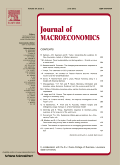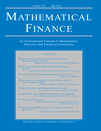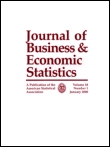
Computational Economics
metrics 2024
Bridging Theory and Technology for Economic Progress.
Introduction
Computational Economics is a premier journal dedicated to advancing the interdisciplinary field that bridges computational methods and economic theory. Published by Springer in the Netherlands, this journal serves as a critical platform for researchers and practitioners from economics, econometrics, and computer science, fostering innovation and cross-pollination of ideas from 1993 to 2024. With a notable impact factor in its categories—ranking Q2 in Economics, Econometrics, and Finance and Q3 in Computer Science Applications—Computational Economics consistently delivers rigorous peer-reviewed research that addresses contemporary challenges in economic modeling and computational techniques, making it an indispensable resource for the academic community. The journal provides a range of access options and is indexed in Scopus, where it holds a strong position in the 78th percentile of its category, ensuring high visibility and engagement for published works. Researchers, students, and professionals will find valuable insights across its diverse scope, facilitating the exploration of new methodologies that shape the future of economic analysis.
Metrics 2024
 0.50
0.50 1.90
1.90 1.80
1.80 47
47Metrics History
Rank 2024
Scopus
IF (Web Of Science)
JCI (Web Of Science)
Quartile History
Similar Journals

Forecasting
Pioneering Research in Predictive Methodologies.Forecasting is an esteemed open-access journal published by MDPI, dedicated to advancing the fields of Computational Theory and Mathematics, Computer Science Applications, Decision Sciences, and Economics, since its inception in 2019. With its base in Switzerland, the journal aims to provide a fundamental platform for researchers, professionals, and students aiming to share high-quality research on mathematical methods for forecasting and prediction model development. As of 2023, Forecasting holds an impressive Q1 ranking in Economics, Econometrics, and Finance, alongside Q2 rankings in Computational Theory and Mathematics, Computer Science Applications, and Decision Sciences, reflecting its rigorous peer-review process and scientific impact. Forecasting has carved a niche as a leading publication, inviting high-quality contributions that stimulate innovation in forecasting methodologies across various applications in decision-making and economic analysis. This impact is further underscored by its commitment to open access, ensuring that research is readily accessible to the global academic community.

American Economic Journal-Macroeconomics
Shaping Economic Thought Through Rigorous ResearchAmerican Economic Journal-Macroeconomics, published by the American Economic Association, stands at the forefront of economic research, addressing pivotal macroeconomic issues that shape global economies. With an impressive Scopus rank of #8 out of 288 in its field and a notable 97th percentile ranking, this journal is widely regarded as a top-tier publication, specifically categorized in the Q1 category for Economics, Econometrics, and Finance as of 2023. Operating under ISSN 1945-7707 and E-ISSN 1945-7715, it aims to disseminate high-quality research from 2009 through 2024 and beyond, providing crucial insights into macroeconomic theory and policy. Although the journal currently does not operate under an open access model, it remains a vital resource for researchers, economists, and students seeking to deepen their understanding of macroeconomic dynamics and their implications for economic policy worldwide. The journal's impactful contributions make it an essential read for those striving to influence economic thought and practice.

Mathematics and Financial Economics
Transforming Financial Practices through Mathematical InsightsMathematics and Financial Economics, published by Springer Heidelberg, is a leading peer-reviewed journal that explores the intersections of mathematical theories and financial practices. With an ISSN of 1862-9679 and an E-ISSN of 1862-9660, the journal has made notable contributions to its field since its inception in 2007, with a convergence period extending until 2024. Positioned in the prestigious Q2 category for both Finance and Statistics and Probability, the journal is ranked within the top 66th percentile in Mathematics and Statistics and the 62nd percentile in Decision Sciences according to Scopus metrics. Researchers and professionals looking for high-quality, innovative research in mathematical finance will find valuable insights within its pages. Although primarily a subscription-based journal, it aims to foster knowledge sharing among academia and industry experts. Its commitment to advancing quantitative methods and financial applications solidifies its importance as a resource for students, researchers, and practitioners dedicated to understanding and navigating the complex dynamics of financial markets.

ENGINEERING ECONOMIST
Unveiling Methodologies for Engineering SuccessENGINEERING ECONOMIST, published by Taylor & Francis Inc, stands as a revered journal in the intersecting fields of economics, engineering, and education, with an ISSN of 0013-791X and E-ISSN of 1547-2701. Since its inception in 1955, this journal has provided a vital platform for researchers, practitioners, and students to disseminate and engage with novel insights and methodologies impacting the engineering economy. With a robust focus on the quantitative aspects of engineering management and decision-making, ENGINEERING ECONOMIST ranks within the Q3 category in multiple disciplines including Economics and Econometrics, Education, and Miscellaneous Engineering as of 2023, reflecting its significant contributions to the scholarly community. The journal’s Scopus rankings further emphasize its relevance, ranking #778 in Education and #158 in General Engineering. Although the journal does not offer Open Access options, it remains pivotal for advancing the dialogue at the nexus of technology and economics, making it an essential resource for anyone interested in the financial dimensions of engineering innovations.

JOURNAL OF MACROECONOMICS
Driving Understanding of Economic ForcesJOURNAL OF MACROECONOMICS, published by Elsevier, stands as a significant platform for scholarly discourse in the field of economics and econometrics. With an ISSN of 0164-0704 and an E-ISSN of 1873-152X, this journal has been actively contributing to the academic community since 1979 and continues to publish impactful research through 2024. It is recognized within the Q2 category for Economics and Econometrics in its 2023 quartile rankings, and it holds a respectable Scopus ranking of #353 out of 716 in its field, placing it in the 50th percentile. Despite not being an open-access journal, it provides valuable insights into macroeconomic theories, empirical assessments, and policy implications, making it an essential resource for researchers, professionals, and students aiming to deepen their understanding of macroeconomic dynamics. To access a breadth of contemporary research and enhance your academic pursuits, consider diving into the latest issues of this esteemed journal, conveniently located in Amsterdam, Netherlands, at RADARWEG 29, 1043 NX.

MATHEMATICAL FINANCE
Advancing Knowledge in Quantitative FinanceMATHEMATICAL FINANCE is a prestigious journal published by Wiley, focusing on the interdisciplinary fields of finance, applied mathematics, accounting, and economics. With its ISSN 0960-1627 and E-ISSN 1467-9965, this journal has earned its place in the top tier of academic publications, reflected by its Q1 rankings across multiple categories in 2023, including Accounting, Applied Mathematics, Economics and Econometrics, Finance, and Social Sciences. MATHEMATICAL FINANCE, which commenced publishing in 1991, is recognized for its rigorous peer-review process and its significant contribution to the advancement of knowledge in quantitative finance methodologies and risk management practices. Although it does not currently offer open access, the journal remains an invaluable resource for researchers, professionals, and students seeking to stay abreast of the latest theoretical advancements and empirical studies in mathematical finance. Its impact factor and Scopus rankings further illustrate its high standing within the academic community, making it an essential platform for impactful research and scholarly discourse.

Ekonomika i Matematiceskie Metody-Economics and Mathematical Methods
Navigating the Intersection of Economics and MathematicsEkonomika i Matematiceskie Metody - Economics and Mathematical Methods is a distinguished journal published by the esteemed Russian Academy of Sciences and the State Academy of Humanities (GAUGN). It serves as a vital resource in the interdisciplinary field of economics and mathematical applications, focusing on advanced theories, methodologies, and quantitative techniques that drive economic research and practice. With an ISSN of 0424-7388, this journal is geared towards researchers, professionals, and students who seek to contribute to the evolving landscape of economic theory and mathematics. Although the journal does not currently offer open access, it remains committed to fostering rigorous academic discourse. Through its insightful articles, Ekonomika i Matematiceskie Metody plays a crucial role in disseminating influential concepts and methodologies, making it an essential publication within the realm of economic sciences.

Quantitative Finance and Economics
Exploring Innovative Quantitative Techniques for Economic ImpactQuantitative Finance and Economics, published by the American Institute of Mathematical Sciences (AIMS), is a pioneering open-access journal committed to advancing the fields of finance and economics. Established to disseminate high-quality research, this journal has been an open-access platform since 2017, promoting wider accessibility to vital academic findings. It serves as a crucial resource for researchers and professionals alike, offering valuable insights through rigorous studies in quantitative methods that influence financial and economic decision-making. Although current Scopus rankings indicate emerging challenges, with a rank in the lower percentiles across various categories, Quantitative Finance and Economics strives to gain recognition by bridging theoretical frameworks with practical applications. The journal invites contributions that explore innovative quantitative techniques and their implications in contemporary economic scenarios, thus underscoring its role in shaping discourse and research in this critical sector.

JOURNAL OF BUSINESS & ECONOMIC STATISTICS
Fostering Knowledge in the Dynamic World of EconomicsJOURNAL OF BUSINESS & ECONOMIC STATISTICS is a premier academic journal published by Taylor & Francis Inc, dedicated to disseminating high-quality research in the fields of business, economics, and statistics. With an impressive impact in the academic community, the journal maintains a distinguished Q1 ranking across various categories including Economics and Econometrics, Social Sciences (miscellaneous), and Statistics and Probability, showcasing its relevance and influence in contemporary research. Since its inception in 1983, the journal has served as a vital resource for researchers, professionals, and students seeking insights into quantitative methodologies and their application in the economic domain. While the journal is not currently open access, its rigorous peer-review process ensures that published articles are of the highest scholarly standards. Researchers and practitioners alike will find a rich repository of empirical and theoretical studies that foster knowledge advancement in the intersecting realms of business, economics, and statistical analysis.

THEORY AND DECISION
Innovating Research, Shaping Decisions Across DisciplinesTHEORY AND DECISION is a prestigious academic journal published by SPRINGER, which has been a cornerstone of interdisciplinary research since its inception in 1970. With an ISSN of 0040-5833 and an E-ISSN of 1573-7187, this journal offers valuable insights into a range of fields, including Applied Psychology, Decision Sciences, Economics, and more. Holding a remarkable position within various quartile rankings, such as Q1 in Arts and Humanities and Q2 in Economics, it signifies the journal's impact and relevance in modern academic discourse. Although not presently open access, it remains accessible to researchers and institutions that prioritize impactful studies and theoretical advancements. The journal's objectives include exploring decision-making processes and theoretical underpinnings that inform practical applications across disciplines, making it an essential resource for academics, professionals, and students dedicated to advancing knowledge in their respective fields. THEORY AND DECISION continues to shape the landscape of interdisciplinary research, providing a platform for innovative ideas and discussions that are crucial in today’s complex world.